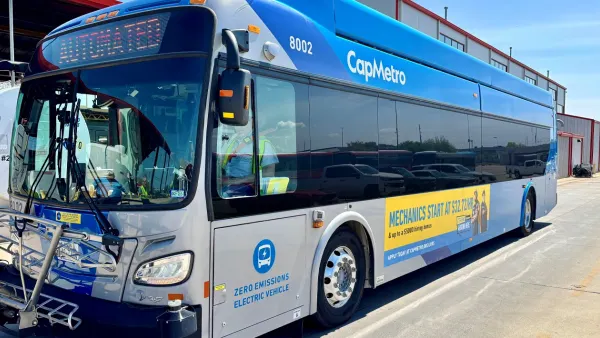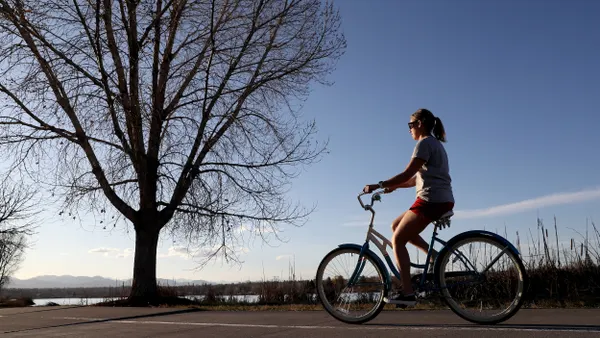Dive Brief:
- Denver has released a set of five plans to guide its development and growth over the next 20 years. The set of draft plans includes an over-arching Comprehensive Plan 2040; Blueprint Denver, covering land use and transportation; Game Plan for a Healthy City, for parks and recreation; and two transportation plans called Denver Moves: Transit and Denver Moves: Pedestrians & Trails.
- The city crafted the plans based on two years of community outreach and planning during an effort called "Denveright." The visions put a heavy focus on creating and maintaining an equitable, affordable and inclusive community, in addition to transportation and sustainability.
- The city is hosting a Denveright community meeting late this month for residents to learn more about the plan, and the public review period runs through Oct. 31. City staff will review public comments, and early in 2019 the Denver City Council will review plans that need its adoption.
Dive Insight:
Denver has had a population boom over the past decade, with the U.S. Census Bureau estimating a 17.5% population increase between 2010 and 2017. Research released in the spring also indicates the city is adding highly skilled workers faster than any other U.S. city.
Residents are feeling some negative effects of the rapid growth like greater traffic congestion and higher housing costs brought on by a shortage of available stock. Denver released a five-year affordable and inclusive housing plan in February to address some of the housing issues, including homelessness.
The five new plans further tackle those concerns and others through the visions and goals. In fact, the plans outright acknowledge the growth and that the city's plans haven't been updated for more than a decade, or kept up with changing needs. "Our population has experienced rapid growth. We’ve learned smarter and more modern ways to plan for the future of our city with inclusivity and climate change in mind," reads a portion of Blueprint Denver.
The parks and recreation document notes that despite the massive growth since 2010, park space has only increased 1% and now is below the national average in park access. The suggested actions are aimed at improving residents' health in addition to boosting environmental benefits of green space like flood mitigation and preventing an urban heat island effect.
The plans heavily focus on inclusivity and equity, which often take a hit in cities with affordability crises. The intent is not just to improve affordability, but also to create equitable access to the city's services and amenities.
The city's preferred growth strategy is to direct most development toward key corridors through mixed-use developments and community centers. These areas will be walkable and served by improved transit in addition to providing easy access to parks and open space.
Thoughtful planning in an array of fields could help Denver stave off further negative effects should it continue to have a high rate of growth. But planning a framework is just the first step; effective strategy implementation is paramount to achieve the desired outcomes, which the plans indicate will require partnerships and investments.











